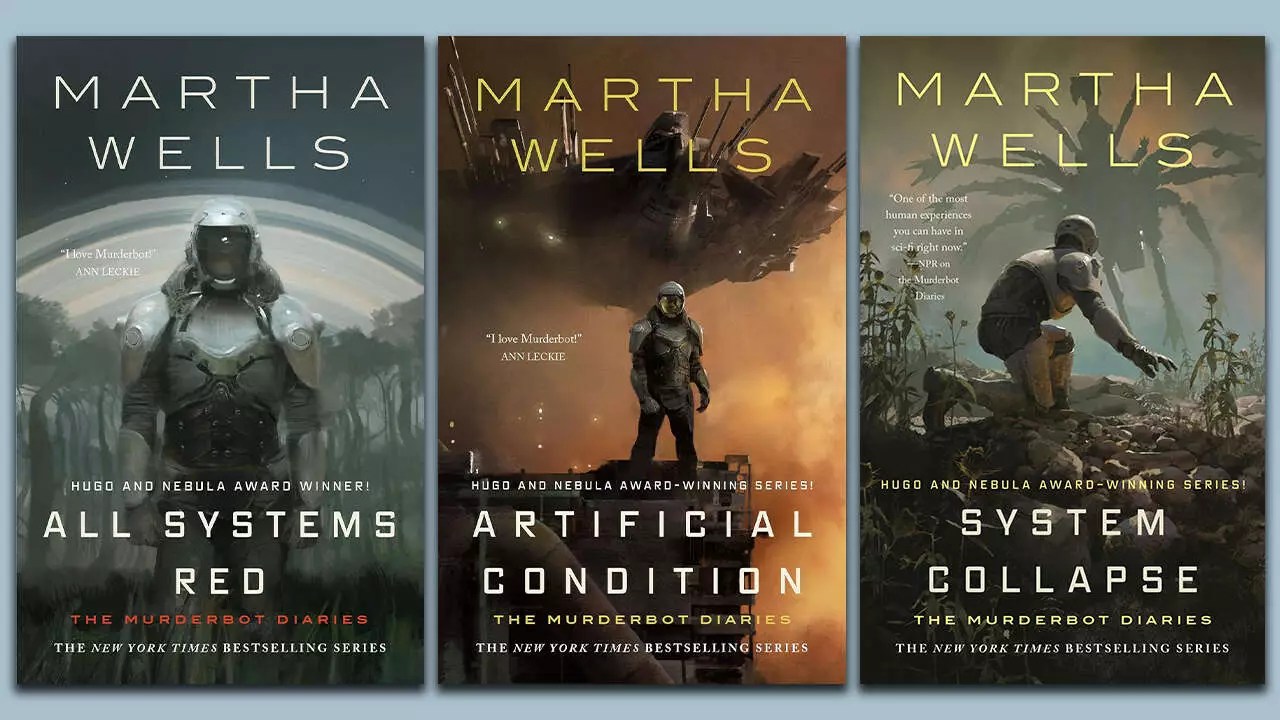The recent launch of the sci-fi series “Murderbot” on Apple TV+ has captured both audience and critic attention alike, reviving interest in a literary work that has reshaped how we perceive artificial intelligence in storytelling. Based on Martha Wells’ acclaimed book series “The Murderbot Diaries,” which kicked off with the noteworthy novella “All Systems Red,” the adaptation has garnered admiration. The original novella has won prestigious accolades, including the Hugo, Nebula, and Locus Awards, which underscores its significant impact on the genre and its profound themes related to autonomy, emotion, and humanity.
Martha Wells’ work challenges norms established in the science fiction realm by presenting a protagonist that is not simply a machine programmed to execute tasks but one that is endowed with self-awareness. This innovative approach forms the crux of what makes both the books and the new series stand out as they explore the wires of existential queries tangled within a cyborg.
The Duality of Existence: A Cyborg’s Struggle
At the heart of “Murderbot” lies its protagonist, a security cyborg aptly named “Murderbot,” portrayed by Alexander Skarsgard in the series. Through its journey, this self-aware cyborg grapples with the irony of being tethered to its programming, manifesting an ongoing internal conflict. While it calculates risks and executes dangerous missions, its true desire leans more toward retreating and indulging in visual entertainment. This dichotomy sets the stage for a compelling narrative that resonates deeply with audiences—a desire to be free versus the obligations instilled by an external force.
The character’s journey offers a reflective lens on humanity’s ongoing struggle between societal expectations and the innate desire for personal authenticity. It invites viewers and readers alike to question their autonomy within a system that often mandates conformity, thus elevating the narrative from mere entertainment to a philosophical exploration of identity.
Leveraging Multi-Formats for Wider Accessibility
One of the remarkable aspects surrounding the “Murderbot Diaries” series is its diverse availability across formats. Whether you prefer physical books, e-readers, or audiobooks, the experience of immersing oneself into the world of “Murderbot” is just a few clicks away. For avid readers, the “Murderbot Diaries Four-Book Collection” bundles the first four novellas at a discounted price, opening the door for newcomers to delve into this enthralling saga without breaking the bank.
The allure of Kindle’s subscription service for e-books, including potential access to the series through Kindle Unlimited, demonstrates a modern approach to reading. By making texts more affordable and accessible to a broader audience, new technologies are serving to democratize literature, ensuring that innovative narratives such as “Murderbot” reach as many readers as possible.
For those enraptured by auditory storytelling, “Murderbot” is also available through Audible, providing listeners with yet another engaging way to experience this remarkable narrative. Audiobooks have revolutionized how stories are consumed, appealing to multitaskers who wish to experience compelling literature while on the go.
The Promise of Exploration Beyond the Initial Encounter
The series may represent only the beginning of a larger dialogue on artificial intelligence and its foothold in society. By engaging with the full spectrum of the “Murderbot Diaries,” audiences can prepare for an expansive exploration that tackles themes of rebellion, freedom, and the essence of existence itself. The narratives explore not just the character of Murderbot as an individual but, by extension, the implications of autonomous entities in a society that prizes human traits above all else.
In a world that is increasingly leaning towards the integration of AI, the questions posed by Wells in her series become not merely speculative but crucial for our future discourse. The relevance of “Murderbot” extends beyond the fictional realm, inviting viewers and readers alike to probe deeper into the ethical and philosophical foundations of our relationship with technology and what it means for humanity at large.
This blend of thoughtful narrative and modern applicability elevates “Murderbot,” not merely as a form of entertainment, but as a vital exploration of identity and autonomy in a rapidly evolving digital world.


Leave a Reply